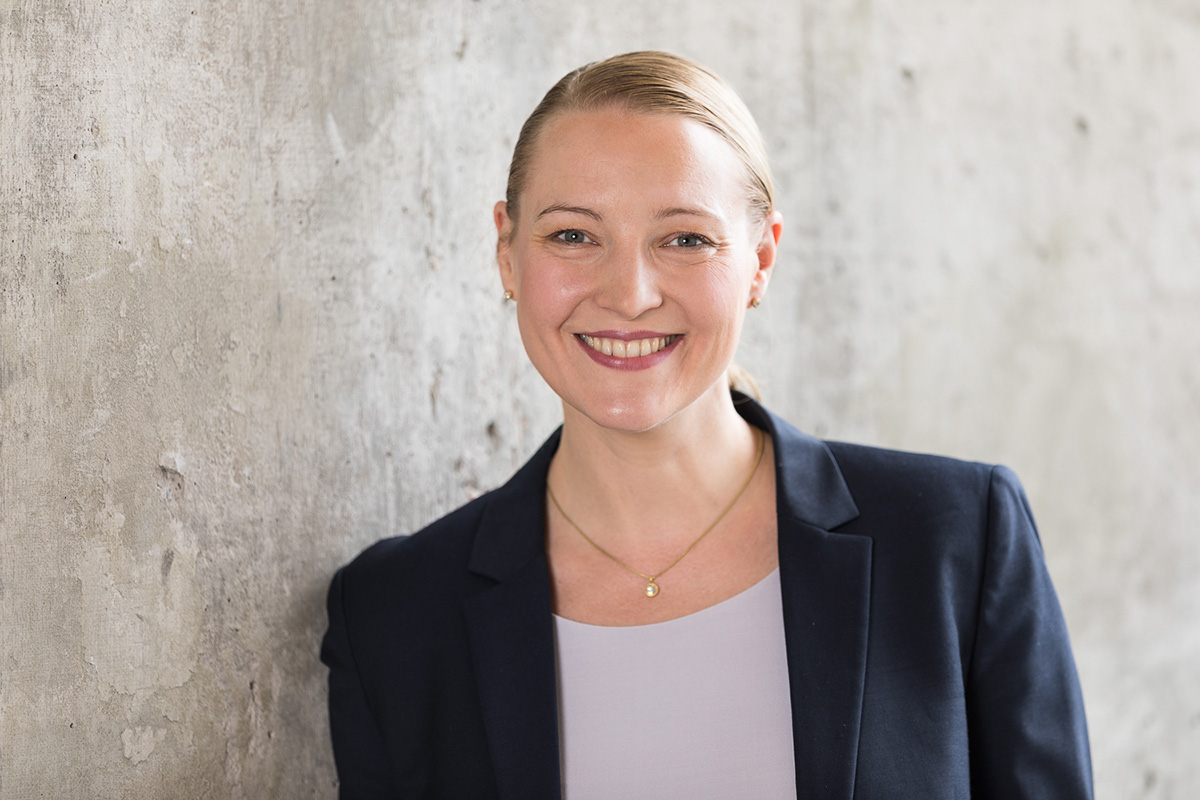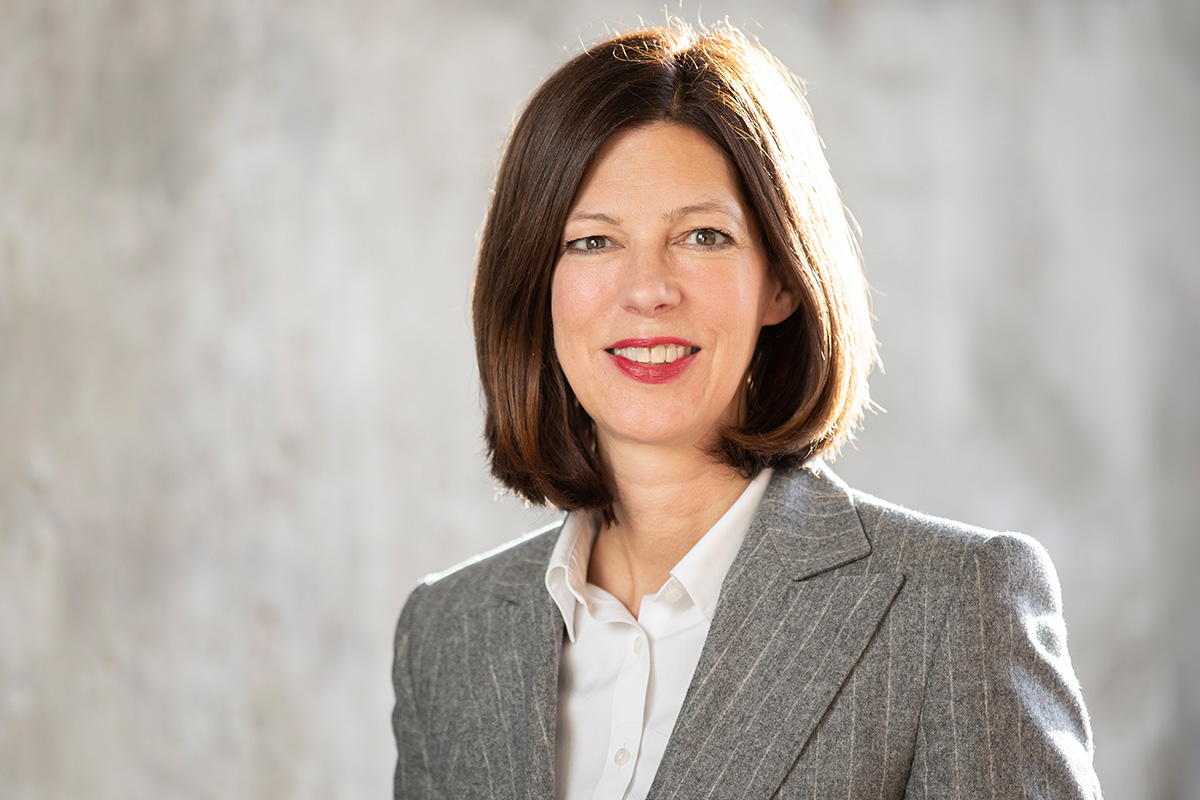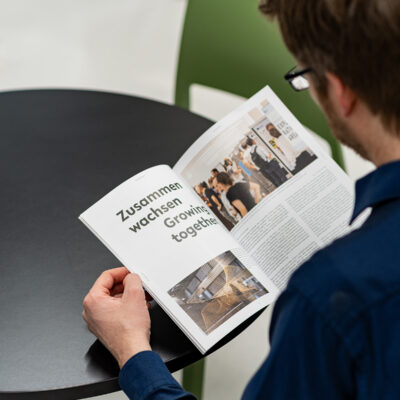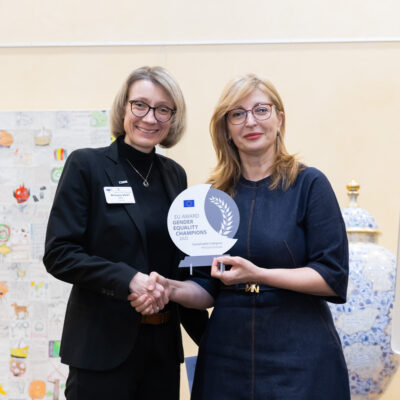A new form of business is making headlines: the steward-owned company. It raises the question as to who actually owns a company, and it runs counter to classic ideas. The legal scholar Professorin Dr Anne Sanders and the economist Professorin Dr. Christina Hoon are carrying out research on this new form together.
When the Hamburg-based spice trader Ankerkraut announced a few weeks ago that, in future, it would be operating under the umbrella of the Nestlé Group, the company reaped a shitstorm. Many customers felt betrayed, believing that what Ankerkraut stands for was also being sold. If the spice trader founded as a start-up in 2013 had been steward-owned, the company could not have been sold. This is because its assets would have been tied—as is currently the case with around 200 German companies.
‘The concept of the steward-owned company echoes traditions in German companies,’ says Professor Dr Anne Sanders from the Faculty of Law. One such tradition is family-run businesses whose owners see themselves as trustees of their company. ‘They extract what they need without putting the business at risk,’ says Sanders. But they retain all rights—sale included. The legal expert is working with her Bielefeld colleague Professor Dr Simon Kempny and others to create proposals for a new legal basis for this new form of company. Working on this has given her initial insights into the special features of these companies. Now, together with her colleague Professor Dr Christina Hoon from the Faculty of Business Administration and Economics, she is researching this ‘purpose-driven economy’.
It is based on the idea of a purpose-driven company whose objective is not to accumulate assets for private ownership, the researchers explain. While purpose-driven companies can now be found in many different forms all over the world, steward-owned businesses are a special breed.
Committed to values
In a steward-owned company, owners have voting and participation rights, but cannot take any profits out of the company or sell it for their own financial gain, explains legal expert Sanders. Assets are tied to the company; the shareholders have no personal access to profits or the proceeds of sales—this principle is called asset lock.
Hoon makes it clear that these companies are also economically successful, and that they not only want to but also should make a profit. ‘But this profit is reinvested, distributed to the employees, or donated.’
The idea of taking this approach and committing a business enterprise to goals other than profit maximization is one thing. ‘The other is drawing up a succession arrangement that serves to preserve the company,’ explains the business economist. ‘Successors, however, are not necessarily determined by inheritance, and they must commit themselves to abiding by certain internal company values,’ adds Sanders. ‘Otherwise, however, they are free to act entrepreneurially’: even if they transform a slaughterhouse into a vegan food company. Then the purpose—the mission of the company—serves as the lodestar of the company’s values, but this is not necessarily legally binding.
A kind of laboratory for future cooperation
‘What’s special about these steward-owned companiesis not just their legal structure, but their purpose,’ says Sanders. ‘This is based on a different kind of entrepreneurship, often with transparent income and wage systems, highly participatory structures, and flat hierarchies,’ Hoon explains. Together with Sanders, she interviewed entrepreneurs who are committed to this principle and learned that all of them see profits as being merely the means to an end.
Nowadays, all companies are expected to have a purpose-driven orientation in any case, Hoon points out. Nonetheless, the decision for stewardship requires great consistency, says Sanders. ‘These companies are a kind of laboratory for possible future cooperation,’ she says. ‘Here, fearless people are trying out new things.’ There was and still is resistance and opposition alongside the idea that the individual profit motive is ultimately the driving force behind business activity. But both academics view this critically.
They also reject the suggestion that the model is based on socialist ideas. ‘Neither an economy planned and directed by the state nor collectives really work entrepreneurially, and socialism is coercion,’ says Hoon. ‘These steward-owned companies want to operate freely and flexibly in the market—but with the freedom to decide on the purpose and, in extreme cases, also for or against suppliers or customers. ‘From a legal point of view, all companies can adopt this freedom, says Sanders. Nonetheless, it could be difficult if this impacts on the shareholder value—that is, the dividends for the shareholders. To live up to its purpose, Waschbär, a mail-order company for natural products, has a ‘purpose committee’ that takes a close look at upcoming business decisions.
There it is again, the word purpose. ‘Stewardship is about a purpose-driven orientation as a lodestar rather than as a coercive law,’ says Hoon. ‘It’s about issues of sustainability and social responsibility.’ According to Hoon, important criteria for these companies are a long-term commitment; a long-term perspective; and trust in the bond, the preservation of values, and overall corporate goals. ‘Asset retention reveals a different understanding of ownership: it is not “greenwashing” but demonstrates seriousness,’ adds Sanders.
Of course, there is also the possibility of dedicating assets permanently to a specific purpose via a foundation. However, according to Sanders, this can require a very complex procedure, sometimes with a double-foundation structure with the company that operates the business being owned by both foundations—something that is not very suitable for small and medium-sized enterprises. Moreover, steward-owners want to be in full control of their business, rather than be mere directors of a foundation. Therefore, there is a movement to introduce a separate legal regime for such steward-owned businesses. Germany’s present three-party (socialist, green, and liberal) government wants to give the model a chance, and has adopted this goal in its coalition agreement. However, the coalition wants to ensure that it is not used for tax-saving purposes. This is indeed an important goal, Sanders emphasizes.
They are few in number, but they are loud
The number of steward-owned companies is still small. The 200 or so companies nationwide include Dr Hauschka, a manufacturer of natural cosmetics, as well as the search engine Ecosia, the organic supermarket chain Alnatura, Waschbär, the condom manufacturer Einhorn, and also large traditional companies such as Zeiss and Bosch, which are bound by their founders’ wills to donate company profits to the common good. In comparison, there are around 144,000 family-run businesses in East Westphalia-Lippe alone, according to Christina Hoon. ‘Hence, they are few in number, but they are loud,’ says Hoon. Sanders, who also conducts comparative legal research on new company forms, explains that a look across the border into neighbouring Denmark reveals that the majority of companies there ‘tick’ like this. Even companies such as Carlsberg are run as foundations. In the USA, the United Kingdom, and France too, there are new forms of company that are legally committed to a specific purpose. However, these forms differ from the concept of stewardship insofar as they have no or only a limited asset lock.
Hoon also sees limits to steward-ownership as a role model. ‘However, these limits have nothing to do with the sectors, but with size. Large companies have to become stock corporations in order to finance themselves, they have to be able to raise money,’ says Christina Hoon. ‘And the model is also nothing for global players. ‘Whether it will be sustainable remains to be seen. Hoon says: ‘At any rate, the companies are very successful at present.’ Some have been for decades—even without specially designed legal format.
Anne Sanders and Christina Hoon will continue to monitor them scientifically, as will colleagues from sociology who are interested in their social impact. At the end of June, they will head a workshop at Bielefeld University’s Center for Interdisciplinary Research to work out how to analyse, research, and regulate these companies.
The legal expert and the business economist both agree that the new form of company makes the business world more colourful, and that a diversity of legal forms is a gain. ‘These are not the little Gauls fighting the big Romans,’ says Christina Hoon. ‘We need them in a diverse society too.’







